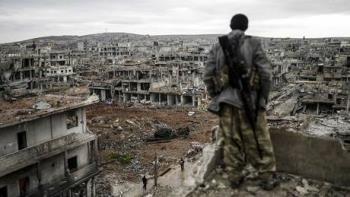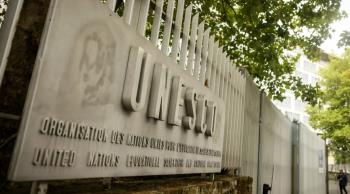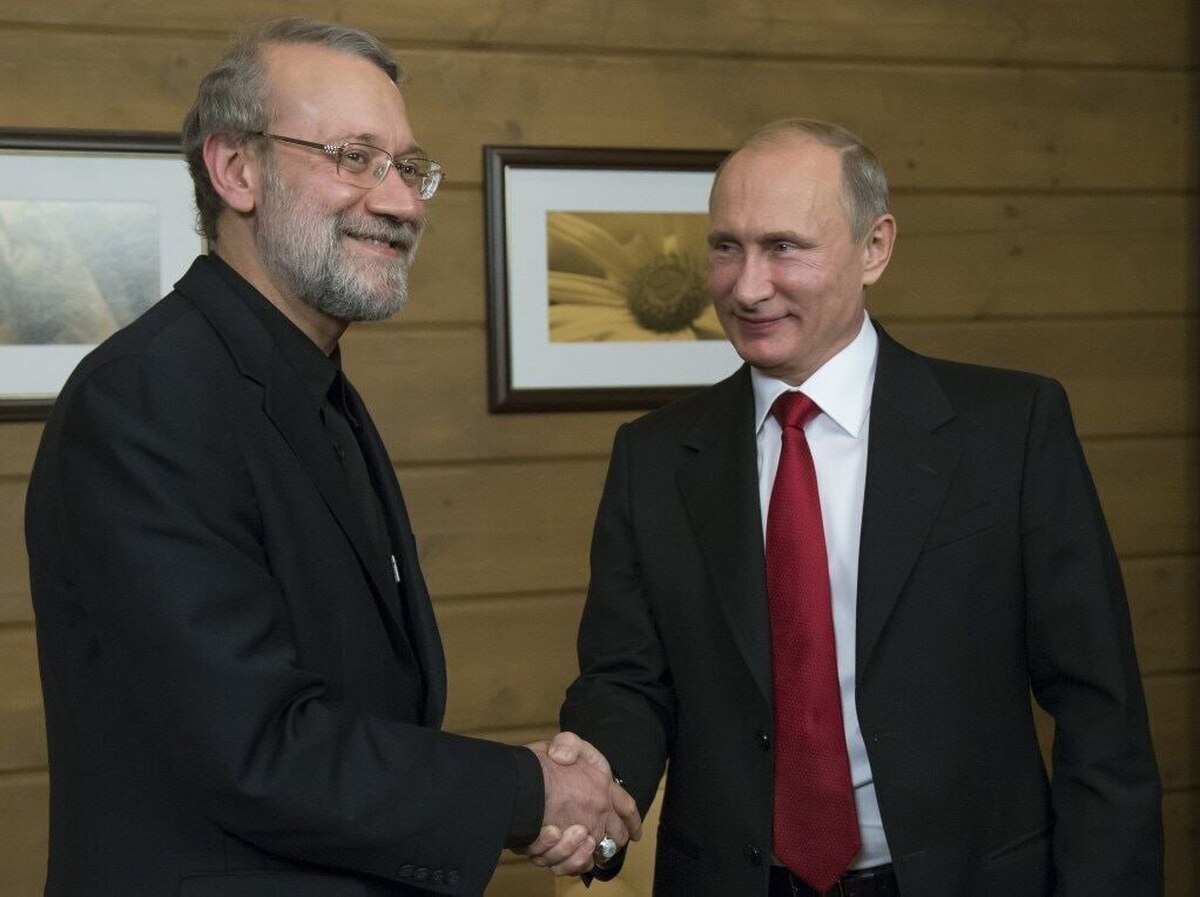Alwaght- While the Russian president’s frequent meetings with Iranian officials have become an indicator of the development of relations and closer ties between Moscow and Tehran in the course of implementing the Strategic Cooperation Agreement and good neighborly relations, the visits of officials and the content of the discussions between the two sides sometimes become the focus of media.
In this connection, the surprise visit of Ali Larijani the senior advisor to Iran’s Supreme Leader Ayatollah Sayyed Ali Khamenei to Moscow on Sunday was brought in spotlight by many media and political observers in terms of its messages and possible outcomes given the developments in the region, especially that Larijani is considered a prominent political figure in the Islamic Republic and an experienced politician who has held important posts, including the secretary-general of the Supreme National Security Council and the diplomatic management of the nuclear negotiations. Naturally, considering this issue, he is expected to carry out an important mission during his trip to Moscow.
Official statements by Iranian and Russian officials indicate that Larijani conveyed a message from President Masoud Pezhakian of Iran to President Vladimir Putin of Russia during his meeting with the Russian leader, and that a series of issues including bilateral relations and regional developments were discussed.
In this regard, foreign ministry spokesman Ismail Baghaee said: “Mr. Larijani, as the President’s special envoy, carried the message and broad vision of the Islamic Republic regarding regional and international developments, as well as bilateral relations.” According to him, the talks in the Kremlin were constructive and covered a wide range of issues.
The positions of the Iranian Foreign Ministry on the overall themes of the trip were also repeated by the Russian Foreign Ministry without referring to the content of Mr. Pezhakian’s message to Putin. Dmitry Peskov, the press secretary of the Kremlin, held that the nuclear issue was one of the issues under discussion.
According to Peskov, the Iranian diplomat, on the orders of his superiors, conveyed to Putin Iran’s assessment of the worsening situation in the Middle East and around Tehran’s nuclear program.
In this regard, the Russian TASS news agency wrote that the meeting between Putin and Larijani took place shortly before the Islamic Republic’s negotiations with the European troika (Britain, Germany and France), which are scheduled to be held in Istanbul, Turkey, next week. It is worth noting that the three European countries which are which signatories of the 2015 Iran nuclear deal have threatened in recent days to activate the “snapback” mechanism, which means restoring UN Security Council sanctions against Iran.
Considering this case, it is clear that Russia, as one of the parties to the 2015 nuclear agreement and a permanent member of the Security Council, can play an important role in the developments of the nuclear file up to the crucial point in September.
In this context, the Russian-language website ura.news reported on the coordination between the two sides on the nuclear issue, stating that the outcome of the meeting was that Russia and Iran were preparing a response to the ultimatum that the European countries had previously set to Tehran.
The media outlet considered the message of this visit to be Moscow’s support for Tehran’s positions, and in an interview with Stanislav Ivanov, a leading researcher at the Center for International Security at IMEMO RAS, wrote that Putin’s meeting with Larijani was both for coordination before the negotiations with the "European troika" and Moscow's moral support for Iran. Ivanov noted: “It is important for Russia to understand Iran’s position before these negotiations.”
Sergei Markov, director of the Institute for Political Studies in Moscow, also took a similar stance: “Moscow and Tehran should create a common concept for the further development of Iran’s nuclear program. This is important for Russia, because resolving the nuclear issue means that there will be no war in the future.”
In the meantime, it is certainly important for Iranian officials to understand Russia’s position. Earlier, Russian Foreign Minister Sergei Lavrov said that Moscow was proposing to remove extra enriched uranium from Iran. Such positions led the Axios to publish controversial news about the Kremlin’s request for Iran to completely stop enrichment, which was met with a firm Russian response.
The Russian Foreign Ministry officially stated that the news that Moscow is asking Iran to abandon uranium enrichment as part of a potential nuclear deal is untrue.
“A dirty, political campaign has begun aimed at escalating tensions over Iran’s nuclear program,” the ministry said in a statement released on Sunday.
The foreign ministry stressed that Russia’s position “on this issue, including in the context of Israeli and US attacks on Iranian territory, is well known.”
“We have consistently and repeatedly emphasized the need to resolve the crisis over Iran’s nuclear program exclusively through political and diplomatic means and have expressed our readiness to help find mutually acceptable solutions,” the ministry noted.
It is noteworthy that the Israeli regime, which is not a member of the Nuclear Non-Proliferation Treaty (NPT) and maintains dozens of nuclear warheads without any International Atomic Energy Agency (IAEA) supervision, launched military operations against Iran and its legal nuclear facilities on the night of June 13. Less than a day later, the Islamic Republic carried out a retaliatory strike. The US entered the conflict nine days after tensions escalated, striking Iranian nuclear facilities at Fordow, Natanz, and Isfahan. In return, on the night of June 23, Iran attacked the largest US air base in the Middle East, Al-Udeid, in Qatar.
Following these developments, the Islamic Republic of Iran, by complaining to the Security Council and condemning the inaction and silence, along with the consent of the International Atomic Energy Agency, in response to the attack on facilities under the supervision of one of its members, decided to abandon the negotiations and limit the agency’s supervision as a punitive measure.
Within this framework, any role Russia plays must certainly be based on supporting the preservation of Iran’s inalienable rights and red lines regarding enrichment, and Tehran does not accept forced and pressured negotiations, as Larijani recently stressed.
“Negotiations are a tactic and the Leader of the Islamic Republic of Iran should be allowed to use them where he deems necessary. There are no negotiations now and I think there is no need to rush. They fought us and, first of all, they must explain why they did this. We should neither stop the negotiations nor do anything else,” he said.
Also earlier, Iranian Foreign Minister Abbas Araghchi had stated that the resumption of nuclear talks with Washington is possible only if Washington is ready for a balanced and mutually beneficial agreement. He also called on the troika to abandon their plans to restore international sanctions. According to Araghchi, their threats “do not strengthen dialogue and only undermine trust.”
Message of military exercises in shadow of Larijani’s Moscow visit
In addition to cooperation on the nuclear issue, Iran and Russia also have common interests or close and aligned views on various regional and international issues, which are taken into account during political interactions to enhance synergy and to maintain regional peace and stability and confront Western interventions.
In the meantime, although Russia holds close relations with the Israeli regime and, due to the large population of Russians in Israel, Moscow’s foreign policy does not conflict much with the West’s security reservations towards Israel, the Kremlin’s condemnation of the joint attack by the Israeli regime and the US on Iran reflects Russia’s concerns about the spread of aggression and destabilizing actions by Tel Aviv and Washington in the region and the unknown consequences of the continued military confrontation between Tehran and Tel Aviv for the security of the region, especially Russia’s southern borders.
This concern can be seen in the joint naval exercise between the two countries in the Caspian Sea, which carries the message of Moscow’s alignment with Tehran in the midst of instability following 12-day war.
The Caspian Sea Combined Maritime Rescue and Rescue Exercise 2025, with the slogan “Together for a Safe and Secure Caspian Sea,” began on Monday for 3 days, with the participation of the naval forces of Iran and the Russian armed forces, hosted by Iran’s Northern Fleet and the Fourth Imam Reza Naval Region.
According to Tasnim, Second Lieutenant Maxim Golod, Commander of the Russian Federation Navy, stated on the sidelines of the joint naval exercise that the main goal of participating in this exercise is to enhance bilateral cooperation and measure the combat capabilities of the two countries’ forces, and stated: “The message of this exercise emphasizes strengthening military interactions between Tehran and Moscow, and I hope that these military exercises will continue continuously in the future.”
Underscoring the significance of continuation of the joint exercises to enhance the readiness of the naval forces of the two countries, the Russian commander said: “Continuing such exercises will pave the way for increasing operational capacity and strengthening strategic synergy between the naval forces of the Islamic Republic of Iran and the Russian Federation.”



























